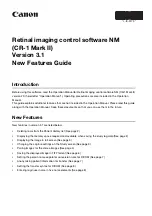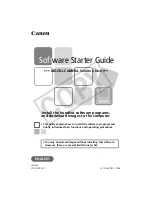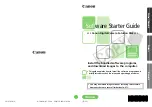
Release Notes for the LattisTalk Model 3394 Router/Repeater Software Version 1.06
2
893-319-E
System Requirements
The version 1.05 operating image for the Model 3394 Router/Repeater must be
downloaded across the network using BootP and TFTP. If you do not have a
BootP/TFTP server configured at your site, contact your local SynOptics sales
representative for details on obtaining appropriate load server software, such as
the LattisBoot Server for DOS Version 1.0 (SynOptics model number 691).
If you have a LattisBoot server configured at your site, refer to the LattisBoot
Server V1.0 For DOS Installation Reference Guide (SynOptics part number
893-354-A).
Problems Fixed in Version 1.05 Operating Image
Version 1.05 fixes problems found in version 1.04. The fixes cover the
following areas:
n
System resets
n
System initialization/configuration
n
Packet leakage
n
Other fixes
System Resets
n
The Model 3394 Router/Repeater would experience sporadic resets,
during which all user-configured parameters (such as network number,
zone names, IP network numbers, and IP subnet mask numbers) would
be deleted. Version 1.05 allows the router/repeater to retain its user-
configured parameters in its battery-backed RAM after a system reset.
Refer to the LattisTalk Model 3394 Router/Repeater Management Guide
(SynOptics part number 893-322-A) for details on user-configured
parameters.
n
In another instance, the Model 3394 Router/Repeater would sporadically
reset and never recover. A Telnet reset was not possible; instead, a
physical reset from the front panel was required to reboot the unit. A
terminal attached to the console port of the router/repeater after the reboot
would show dump messages in the system event log. Version 1.05 corrects
this problem, and the unit no longer sporadically resets.
n
External factors, such as sudden power failures, could trigger the
Model 3394 Router/Repeater into constant reset cycles (loops) when
the version 1.04 operating image was resident. The front panel LEDs of
the unit would flash on and off with each reset/reboot, but the unit would
never fully recover. Version 1.05 corrects this problem, and the unit no
longer cyclically resets (loops). Upon reset, the router/repeater loads its
stored configuration from its battery-backed RAM and becomes a fully
operational device on the network.
























